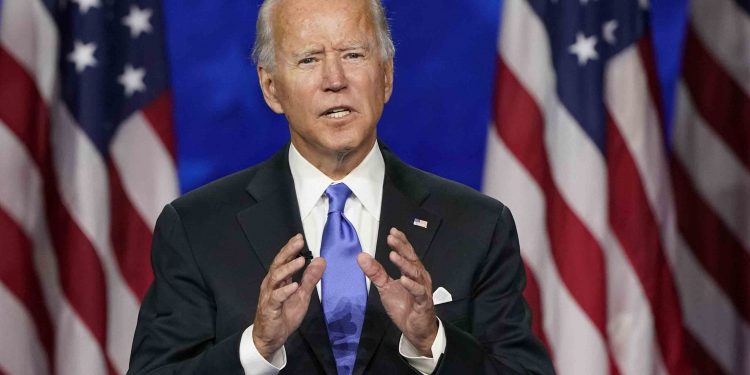Washington: President Joe Biden is keen that the US Congress should quickly fix America’s ‘broken’ immigration system, for which he has already sent in a legislation, the White House has said.
In February, the Biden administration introduced an ambitious immigration bill in Congress which among other things proposes to eliminate the per-country cap for employment-based green cards.
The US Citizenship Act of 2021 proposes a pathway to citizenship to 11 million undocumented workers, elimination of per country quota for employment-based green cards and work authorisation for dependents of H-1B foreign workers.
“The president…Believes that there should be faster processing, that our immigration system is broken at many levels and of the system and that he is eager for Congress to move forward with action there,” White House Press Secretary Jen Psaki told reporters on Wednesday at her daily news conference.
She was responding to a question on the recent protest by Indian-American doctors who are seeking the elimination of the existing per country quota for Green Card, as a result of which the backlog for Indians now runs into several decades.
A Green Card, known officially as a Permanent Resident Card, is a document issued to immigrants to the US as evidence that the bearer has been granted the privilege of residing permanently.
The bicameral immigration bill, if passed by both the chambers of the Congress House of Representatives and the Senate and signed into law by President Joe Biden, would bring citizenship to millions of foreign nationals, including undocumented workers and those who came to the country legally.
The legislation would also benefit hundreds and thousands of Indian IT professionals and their families.
Responding to another question on the inordinate delay in the issuance of employment authorisation card to H4 and L2 visa holders, a significant number of whom are Indian women, Psaki said that part of the reason the administration went to push for action on immigration on the Hill is to move forward with expediting the processing and doing that on several levels, including a number of the visas.
“So, that’s part of the reason why we think that’s such an important piece to move forward,” Psaki said.
An H-4 visa is issued by the US Citizenship and Immigration Services (USCIS) to immediate family members (spouse and children under 21 years of age) of the H-1B visa holders, most of whom are Indian IT professionals.
The Biden administration has taken several steps to address the problems related to legal immigrants.
The citizenship bill sent by the White House to Congress includes providing new funding to the state and local governments, private organisations, educational institutions, community-based organisations, and not-for-profit organisations to expand programmes to promote integration and inclusion, increase English-language instruction, and provide assistance to individuals seeking to become citizens.
This bill clears employment-based visa backlogs, recaptures unused visas, reduces lengthy wait times, and eliminates per-country visa caps.
The bill makes it easier for graduates of US universities with advanced STEM degrees to stay in the US; improves access to green cards for workers in lower-wage sectors; and eliminates other unnecessary hurdles for employment-based green cards.
The bill provides dependents of H-1B visa holders work authorisation, and children are prevented from “aging out” of the system.
The bill sent by the White House also creates a pilot programme to stimulate regional economic development, gives the Department of Homeland Security (DHS) the authority to adjust green cards based on macroeconomic conditions, and incentivises higher wages for non-immigrant, high-skilled visas to prevent unfair competition with American workers.
It also requires that the DHS and the Department of Labour establish a commission involving labour, employer, and civil rights organisations to make recommendations for improving the employment verification process.
Workers who suffer serious labour violations and cooperate with worker protection agencies will be granted greater access to U visa relief.
The bill protects workers who are victims of workplace retaliation from deportation in order to allow labour agencies to interview these workers.
It also protects migrant and seasonal workers, and increases penalties for employers who violate labour laws.
PTI







































